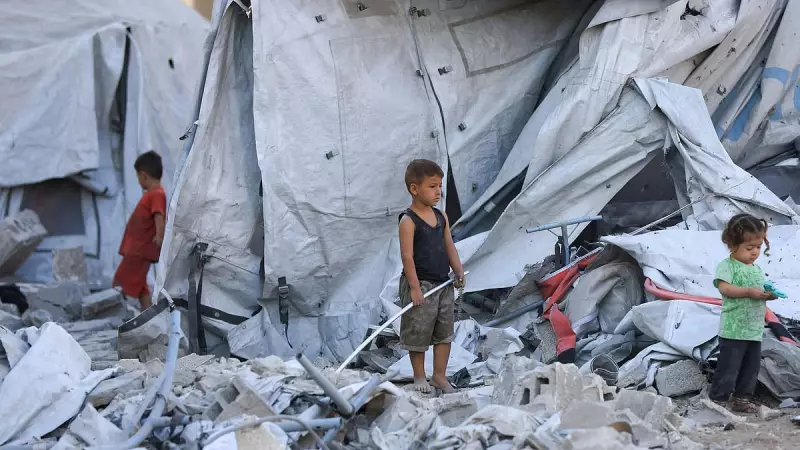
The United Nations Children's Fund has made a startling revelation that threatens to derail crucial vaccination programs for children in the Gaza Strip. According to the international organization, Israeli authorities have been preventing the entry of approximately one million syringes desperately needed to immunize young Palestinians against preventable diseases.
Critical Medical Supplies Stranded at Border
UNICEF officials confirmed that a shipment containing one million syringes has been blocked from entering Gaza since early December. These medical supplies represent an essential component of routine vaccination programs that protect children from dangerous but preventable illnesses. The blockade has created an immediate crisis for healthcare providers struggling to maintain basic medical services in the conflict-affected territory.
The timing of this blockage coincides with increasing concerns about disease outbreaks in Gaza, where living conditions have deteriorated significantly in recent months. Medical professionals on the ground report that vaccination rates have already begun to decline, putting thousands of children at risk of contracting measles, polio, and other contagious diseases that could spread rapidly in crowded living conditions.
Humanitarian Consequences for Vulnerable Children
UNICEF's Middle East and North Africa director, Adele Khodr, expressed grave concern about the situation's impact on Gaza's youngest residents. Over 100,000 children in Gaza could miss essential vaccinations if the syringe blockade continues, creating what health experts describe as a ticking time bomb for public health in the region.
The consequences extend beyond immediate health risks. Interrupted vaccination schedules mean that children who miss their scheduled immunizations may require complete restarting of their vaccination series, further straining limited medical resources. Parents and healthcare workers face the distressing reality of watching children become vulnerable to diseases that modern medicine had largely controlled.
Medical facilities in Gaza, already operating with limited power and supplies, report having to make difficult triage decisions about which children receive available vaccines. Some clinics have resorted to reusing syringes against medical safety protocols, creating additional infection risks for both patients and healthcare workers.
International Response and Ongoing Negotiations
The international community has begun responding to UNICEF's alarming report. Several humanitarian organizations have joined calls for immediate resolution of the medical supply blockage. The World Health Organization has emphasized that denial of vaccination equipment violates international humanitarian law and constitutes a serious threat to child welfare in conflict zones.
Israeli officials have provided limited public comment on the specific reasons for blocking the syringe shipment. Some security sources suggest concerns about potential dual-use applications of medical equipment, though humanitarian organizations counter that the syringes in question are standard vaccination tools with no legitimate security concerns.
Behind the scenes, diplomatic channels remain active as UNICEF and other UN agencies negotiate for the release of the blocked medical supplies. The organization has stressed the urgency of the situation, noting that every day of delay puts more children at risk of preventable diseases.
As winter approaches, health experts worry that the combination of cold weather, inadequate shelter, and declining vaccination coverage could create a perfect storm for disease outbreaks in Gaza. The situation highlights how political conflicts can have devastating consequences for the most vulnerable populations, particularly children who depend on consistent healthcare access for their survival and development.





